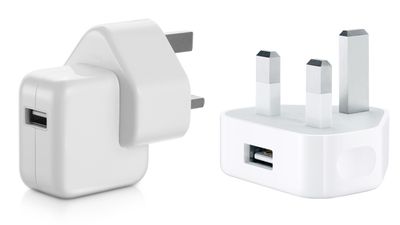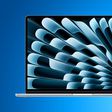99 Percent of Fake Apple Chargers Sold Online Fail Safety Tests
New research conducted by a global independent safety firm has revealed that 99 percent of fake Apple chargers sold online fail a basic safety test (via BBC).
The tests were commissioned by the U.K.'s Trading Standards and undertaken by Illinois-based global safety specialists UL. The insulation tests applied a high voltage to the chargers, which were bought online from eight different countries, including the U.S., China, and Australia.

According to the results, only three out of 400 counterfeit chargers were found to have adequate insulation to ensure protection against electric shocks. Leon Livermore, the chief executive of Chartered Trading Standards Institute, described the counterfeit chargers sold online as an "unknown entity" and urged shoppers to buy electrical goods only from trusted suppliers.
"It might cost a few pounds more, but counterfeit and second-hand goods are an unknown entity that could cost you your home or even your life, or the life of a loved-one," he said.
Earlier this week, Amazon acknowledged a worsening counterfeit problem on its site and said it had made fighting the fake products a "major goal" going forward. The announcement followed a lawsuit filed by Apple last month against a company it accused of selling fake power adapters and cables on Amazon. Apple conducted its own tests and said it found that almost 90 percent of so-called genuine Apple products and accessories it had purchased from Amazon over the last nine months were actually counterfeit.
"Counterfeit electrical goods are likely to be poor quality and in the worst cases unsafe," said Gillian Guy, chief executive of the U.K.'s Citizens Advice. "Look out for tell-tale signs of counterfeiting such as mistakes in brand names or logos, and check plugs for safety marks - all genuine electrical items made in the EU should have a CE mark on them."
Trading Standards included guidelines in its press release to help consumers in the EU spot a fake charger, advising them to check pin size, look for regulation markings, warnings and instructions. In addition, Citizens Advice urged consumers not to overcharge appliances and to never cover devices when charging or use a charger with a cracked case or frayed cable.
Popular Stories
Apple is not expected to release a standard iPhone 18 model this year, according to a growing number of reports that suggest the company is planning a significant change to its long-standing annual iPhone launch cycle.
Despite the immense success of the iPhone 17 in 2025, the iPhone 18 is not expected to arrive until the spring of 2027, leaving the iPhone 17 in the lineup as the latest...
Language learning app Duolingo has apparently been using the iPhone's Live Activity feature to display ads on the Lock Screen and the Dynamic Island, which violates Apple's design guidelines.
According to multiple reports on Reddit, the Duolingo app has been displaying an ad for a "Super offer," which is Duolingo's paid subscription option.
Apple's guidelines for Live Activity state that...
The company behind the BlackBerry-like Clicks Keyboard accessory for the iPhone today unveiled a new Android 16 smartphone called the Clicks Communicator.
The purpose-built device is designed to be used as a second phone alongside your iPhone, with the intended focus being communication over content consumption. It runs a custom Android launcher that offers a curated selection of messaging...
Apple is planning to release a low-cost MacBook in 2026, which will apparently compete with more affordable Chromebooks and Windows PCs. Apple's most affordable Mac right now is the $999 MacBook Air, and the upcoming low-cost MacBook is expected to be cheaper. Here's what we know about the low-cost MacBook so far.
Size
Rumors suggest the low-cost MacBook will have a display that's around 13 ...
Apple plans to introduce a 12.9-inch MacBook in spring 2026, according to TrendForce.
In a press release this week, the Taiwanese research firm said this MacBook will be aimed at the entry-level to mid-range market, with "competitive pricing."
TrendForce did not share any further details about this MacBook, but the information that it shared lines up with several rumors about a more...
Apple today announced a number of updates to Apple Fitness+ and activity with the Apple Watch.
The key announcements include:
New Year limited-edition award: Users can win the award by closing all three Activity Rings for seven days in a row in January.
"Quit Quitting" Strava challenge: Available in Strava throughout January, users who log 12 workouts anytime in the month will win an ...
Govee today introduced three new HomeKit-compatible lighting products, including the Govee Floor Lamp 3, the Govee Ceiling Light Ultra, and the Govee Sky Ceiling Light.
The Govee Floor Lamp 3 is the successor to the Floor Lamp 2, and it offers Matter integration with the option to connect to HomeKit. The Floor Lamp 3 offers an upgraded LuminBlend+ lighting system that can reproduce 281...
Belkin today announced a range of new charging and connectivity accessories at CES 2026, expanding its portfolio of products aimed at Apple device users.
UltraCharge Pro Power Bank 10K with Magnetic Ring
The lineup includes new Qi2 and Qi2.2 wireless chargers, magnetic power banks, a high-capacity laptop battery, and USB-C productivity accessories, with an emphasis on higher charging...
























